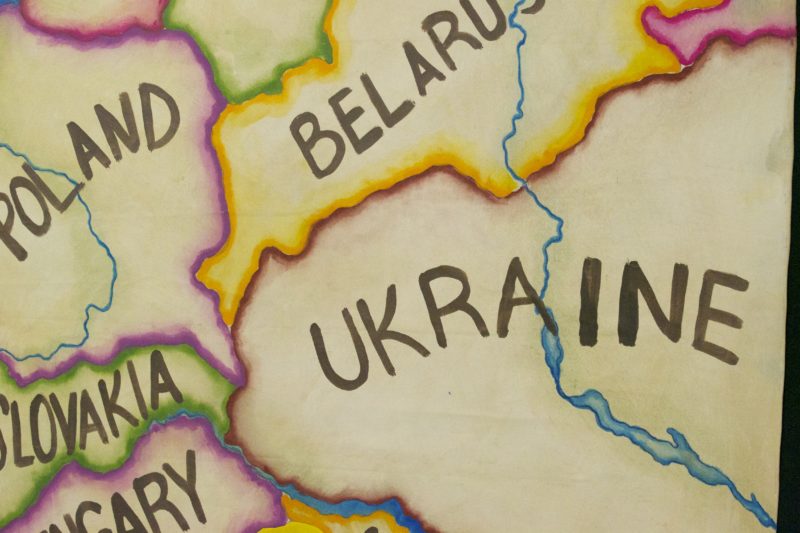Yesterday I wrote about young Ukrainian artists working towards change. Today I thought I’d introduce a dead Ukrainian artist who was not just working towards change but whose life was the epitome of change.
Taras Shevchenko is mostly revered as a literary giant in his own country, where he lived a short 47 years from 1814 to 1861. His life overall, though, reads like a Russian novel, pun intended, although he would nowadays probably turn in his grave if put into the same sentence as the Russians.
The guy was a serf who became an intellectual, a painter who became a poet, a traditionalist who became a revolutionary, a prisoner who became a national hero, a fighter for Ukrainian independence who als was best friends with Russia’s Greats (Dostoevsky spoke at his funeral.)
Born into serfdom in central Ukraine, he showed promise as a painter from an early age on, drawing and painting whenever he could find time between the work done for various masters, priests and his owner. He was allowed to go to St. Petersburg to serve and learn from various artists, who eventually raised the money to buy him out of serfdom. Despite winning prizes for his paintings he increasingly turned to writing. His most famous work, published in 1840, is a collection of poems, Kobsar, named after a wandering Ukrainian bard who plays the string instrument Kobsar or Bandura. The poems focussed on the suffering of the working class people, the exploited women and men of his country, mourning their victimhood. It was language crying out against oppression, that of Tzarist Russia as well as the general one experienced by those without power to defend themselves.
In 1847 he was sentenced to exile at the Caspian Sea because his literary output was seen as an attack on the Tsar. He was strictly prohibited to paint or write, but was able to sketch some during geographic expeditions and became famous for smuggling out written works in people’s boots. He returned from exile in 1857, his health ruined after eventual imprisonment, with a much more forceful revolutionary stance, and a will to bridge two worlds: the traditional world of the simple folk and the intellectual world opening up to modern forms of poetry. After his death in Russia, where he was buried, he was disinterred after 2 months to find a final resting place in Ukraine in accordance with his wishes.
Shevchenko became something of a cult figure, famous enough that the Soviet regime tried to co-opt him as a social revolutionary fighting against the Tsar and a symbol for Russian-Ukrainian friendship. His call for national independence was conveniently ignored. He was and is certainly revered by all Ukrainians even as that nation is ripped apart by diverging political aspirations.
(I learned much of this from the link below, alas in German…. https://ukraine-nachrichten.de/taras-schewtschenko-ukrainischer-nationaldichter-sozialrevolutionäre-ikone-sowjetmacht-bohemien-trunkenbold-kein-fußballer-eine-würdigung-150-todestag_3064
To learn more we could travel to Kiev,
http://museumshevchenko.org.ua
or to Toronto, which has a museum for him as well
http://www.infoukes.com/shevchenkomuseum/
Here is one of his poems:
| Taras Shevchenko
Calamity Again “Mii Bozhe mylyi, znovu lykho!” Translated by John Weir Dear God, calamity again! … |
Тарас ШевченкоМій Боже милий, знову лихо! Мій Боже милий, знову лихо!..
|
|
Since I have never been to Ukraine, I have no photos of the wheat fields it is famous for. So you get images of plowed fields instead, waiting to be seeded with grain.












Steve T.
My god, that Bandora music is incredible! There is so much in this world I will never touch; thank you again for sending all of this my way.
friderikeheuer@gmail.com
Makes me happy to hear that – sometimes I feel it is all going into a void…….